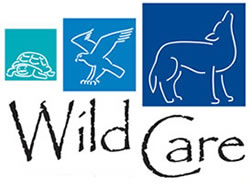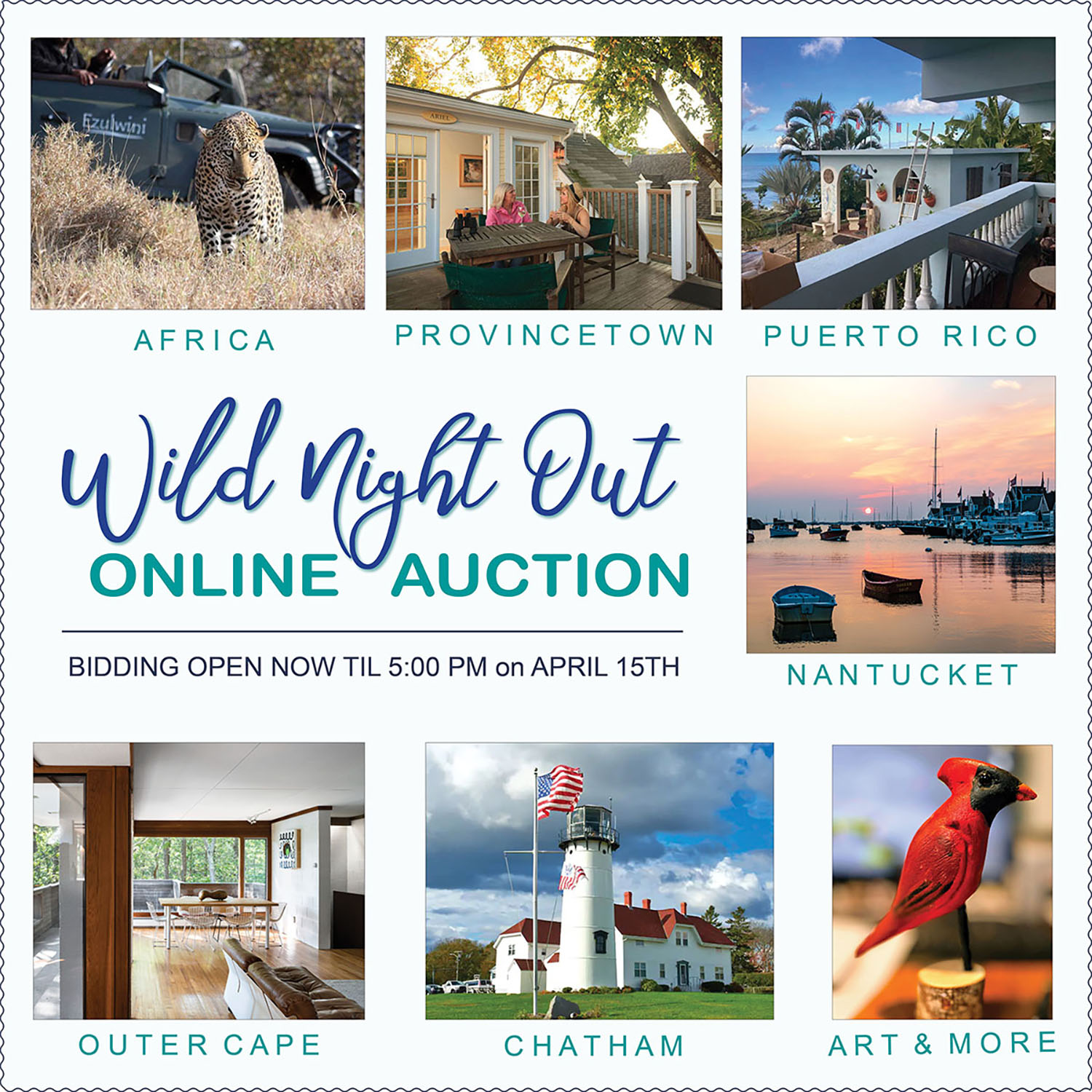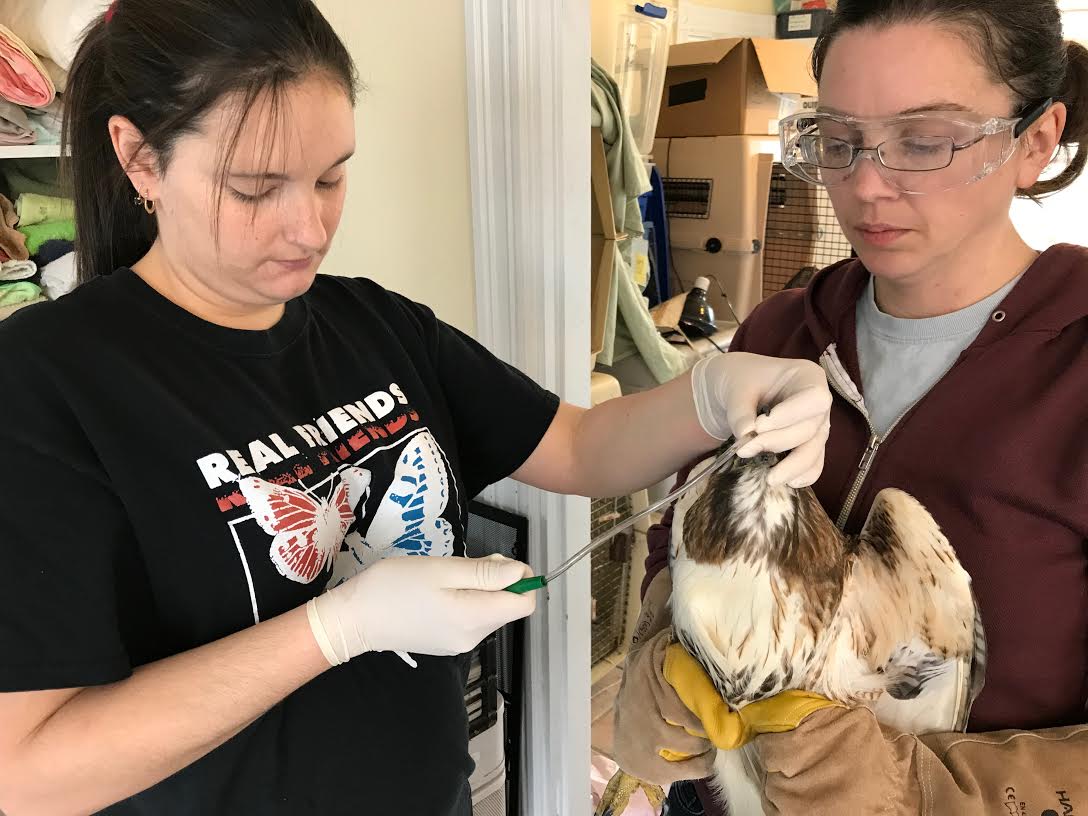
Two to Tango or This Isn’t Your Territory?
By Jennifer Taylor, Animal Care Coordinator
Above: The Red-tailed Hawk receives life-sustaining fluids by Wild Care’s caring staff. Wildlife Rehabilitators Niki Walley (L) and Leah Myrbeck.
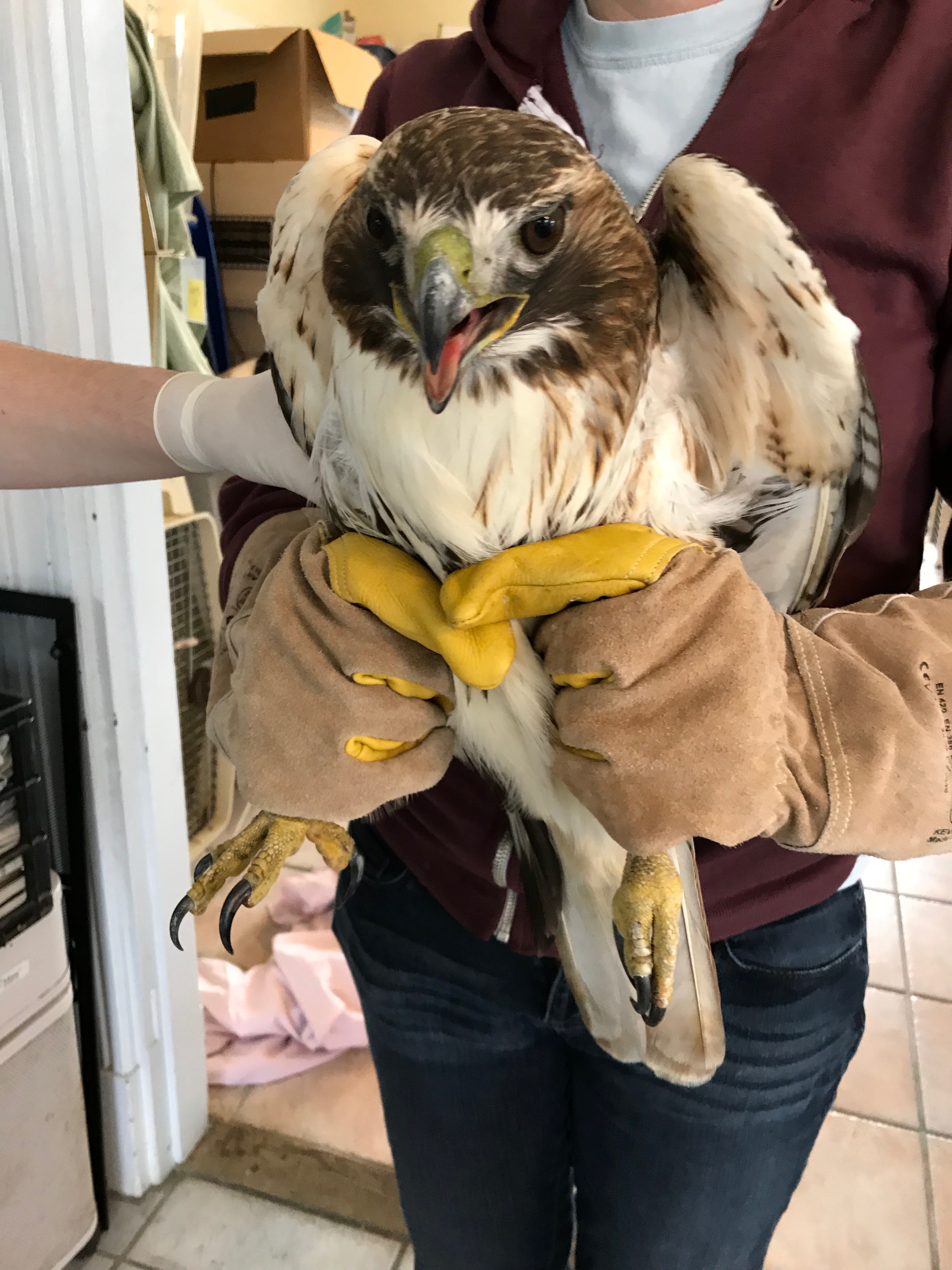
Red-tailed Hawk on admission day, receiving an exam.
Provincetown Animal Control Officer, Ruth Anne Cowing brought us an injured Red-tailed Hawk in February that was found on a road in Truro. She had head trauma probably from either being hit by a car or from impacting the asphalt when hunting on the road. The poor thing was neurologic, emaciated, had blood in her mouth and was too weak to even stand. Upon examining her though, she had the wits to try to talon us!
We placed her in a “donut” for support and gave subcutaneous fluids as she was too weak for an oral tubing. We covered her crate for complete darkness and hoped for the best overnight. This patient had a poor prognosis. In the morning our rehabbers found the bird standing up! She even jumped to get away. Wow! Now over the first hump, we found that she was full of intestinal parasites, so we treated for that. Nothing significant was found in an x-ray so we continued hydrating her and tested for rodenticide poisoning. (All raptors are subject to the effects of rat poisoning when they eat an animal that has ingested poison. Many
rat poisons interfere with the blood’s ability to clot. The bird’s own blood will become too thin, and it will bleed out and die – just like the rat.) We test for this the inexpensive way (free) by taking blood and waiting for it to clot. Normal avian blood should take under 5 minutes to clot- this hawk’s blood took over two hours.
It had rodenticide poisoning along with a concussion. We immediately began treatment with Vitamin K. Its condition improved, and it
was eating on its own only three days after intake. After less than two weeks of treatment the hawk was MUCH better and becoming aggressive, and difficult to handle, so she was placed into a large aviary chamber. She began to fly weakly at first, but again improved quickly and was transferred to the large continual flight pen.
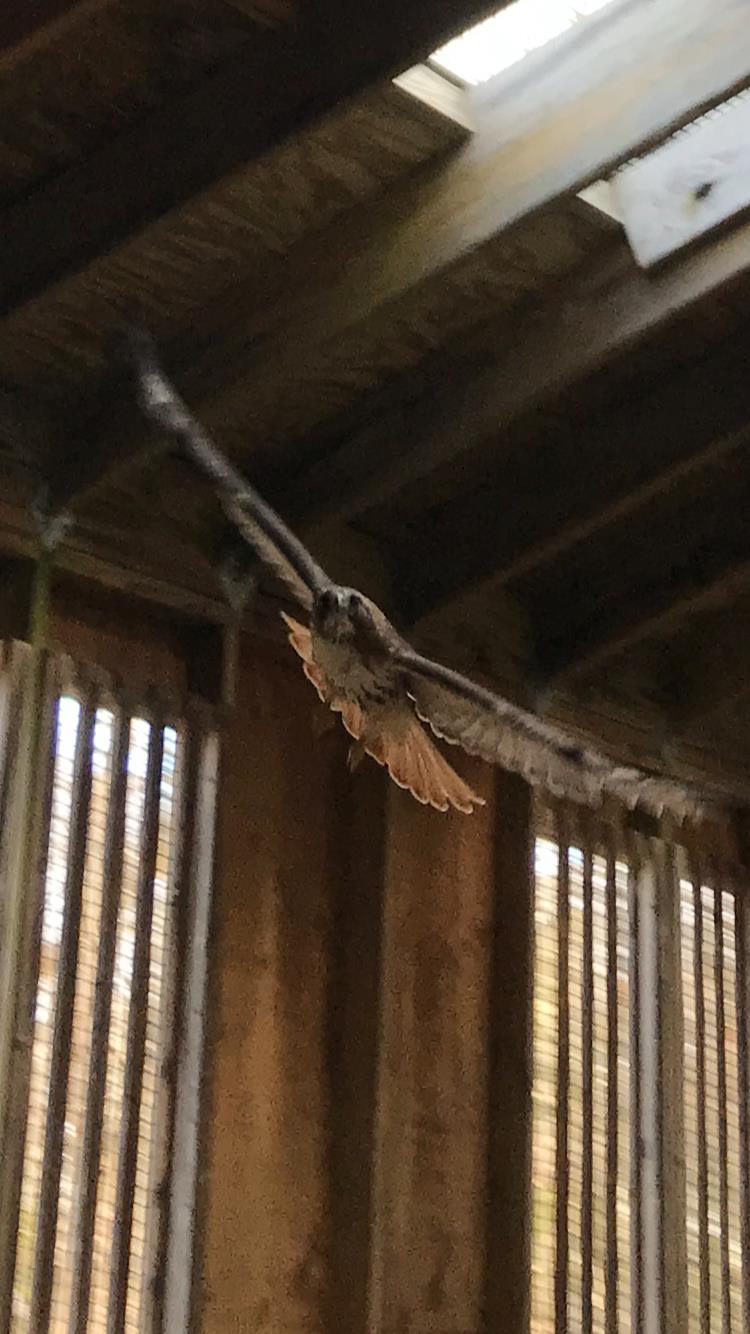 We consulted with Dr. Rob Adamski, DVM, at the New England Wildlife Center, because in our eyes this bird was well enough for release but had not completed her 30-day course of treatment. We were afraid it would hurt itself in captivity. We followed his recommendation to stop the treatment for 7 days, watch for lethargy and if she remains healthy, test the blood again. He recommended that if the blood clots within a few minutes, go ahead and let the bird go. It went very well and we opened the aviary the day of the last blood test. We
We consulted with Dr. Rob Adamski, DVM, at the New England Wildlife Center, because in our eyes this bird was well enough for release but had not completed her 30-day course of treatment. We were afraid it would hurt itself in captivity. We followed his recommendation to stop the treatment for 7 days, watch for lethargy and if she remains healthy, test the blood again. He recommended that if the blood clots within a few minutes, go ahead and let the bird go. It went very well and we opened the aviary the day of the last blood test. We
normally release adult animals back at the location where we found them, but we did not want to release this bird back to its home – obviously riddled with rodenticides.
Two days it took for this hawk to leave- when it did it flew super high over Wild Care along with another Red -tailed Hawk who came out of nowhere. There was not aggression towards one another. Was it a territory issue or was it love? We will never know.
Our Red-tailed Hawk spreads her wings in our large flight aviary, preparing for release. Photo by Amy Webster.
Wild Night Out Online Auction
READY, SET, BID… We are so excited to announce that our Wild Night Out Online Auction is now live!
READ ALL NEWS
CALENDAR OF EVENTS
04 April, 2024
Wild Night Out Online Auction
EVENT DETAILS
05 April, 2024
Wild Night Out
EVENT DETAILS
28 February, 2024
Wildlife Winter/Spring Talk Series
EVENT DETAILS

DID YOU KNOW??
Wild Care has a state-of-the-art seabird therapy pool, which allows seabirds and waterfowl to exercise on running water. This will help our bird friends recover more quickly so they can get back to their watery habitats!
